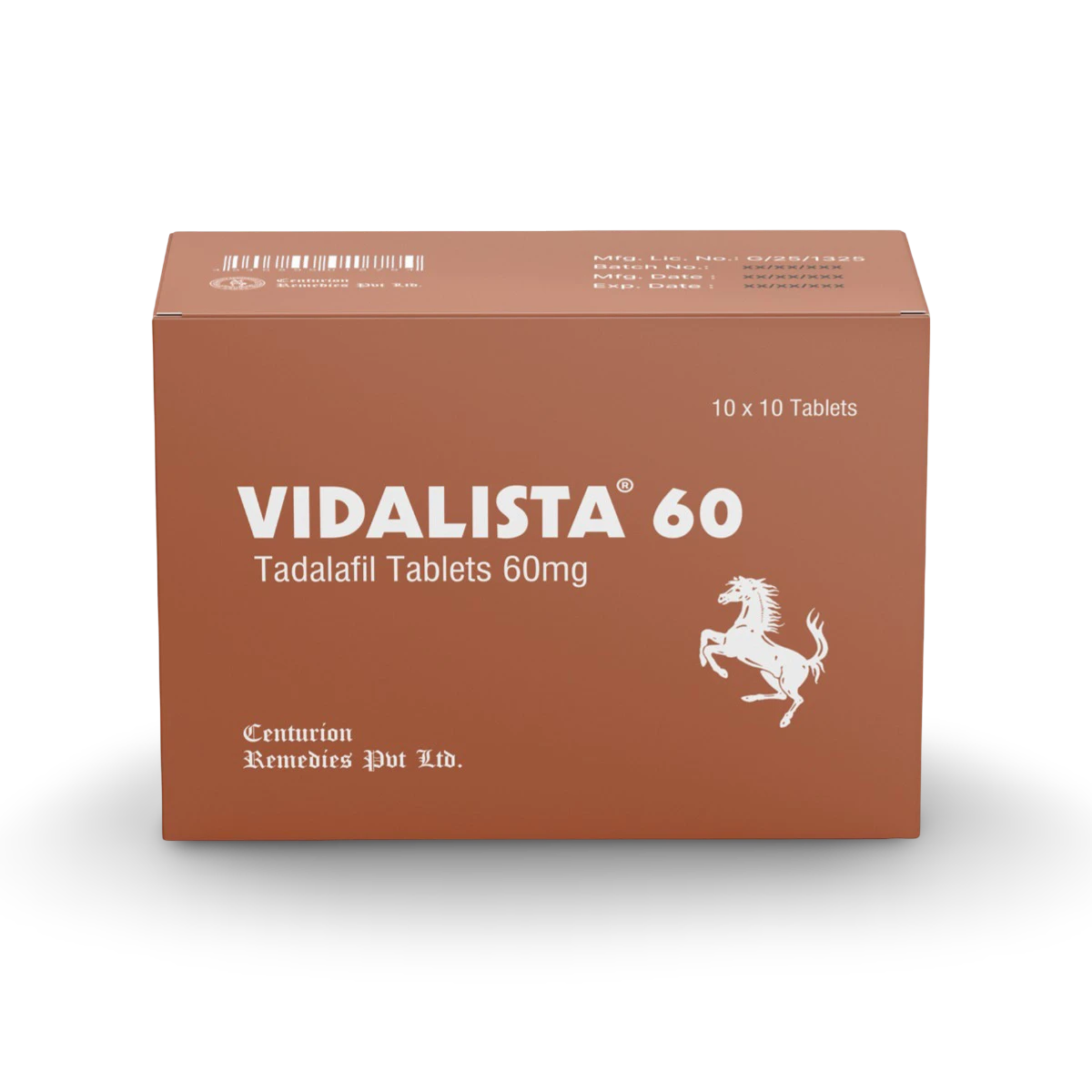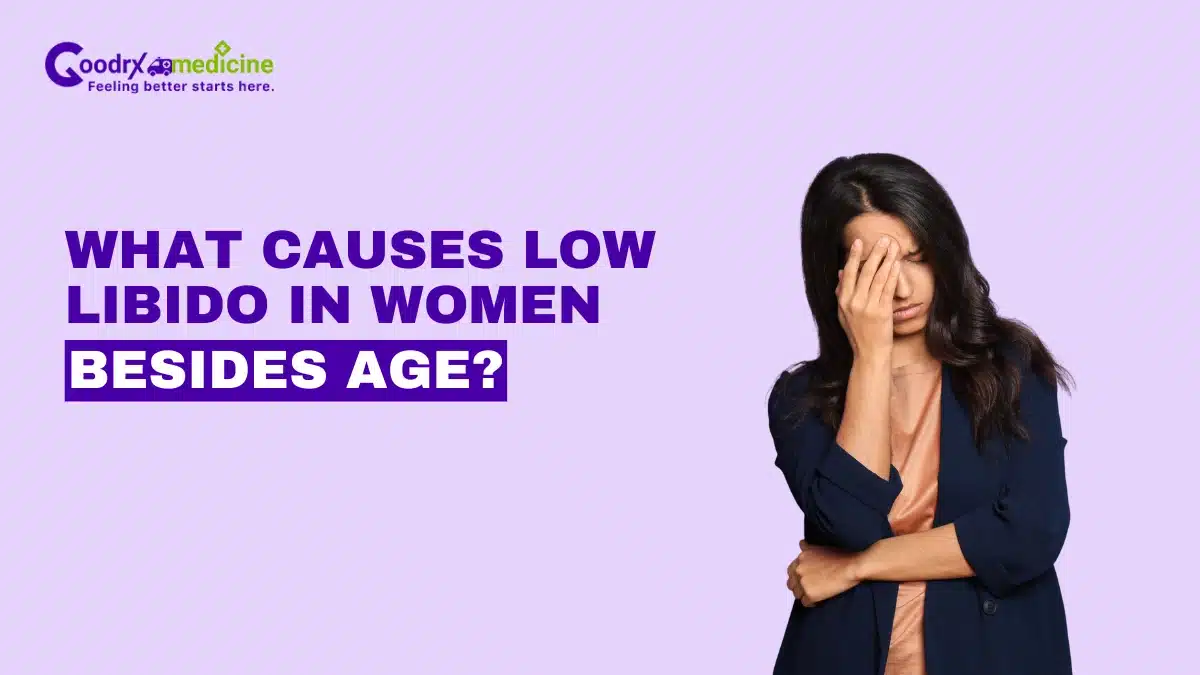Low libido in women is more common than many people think. It can affect you at any age and for many different reasons. Sometimes, it happens suddenly. Other times, it develops slowly over months or even years.
Many factors can influence sexual desire. These include hormone changes, health, emotional well-being, and relationship dynamics. In most cases, more than one cause is involved.
This article will explain what causes low libido in women. Understanding these main reasons can help you identify what may affect you and guide you toward the proper support.
Hormonal changes
Hormones have a major role in sexual desire. Changes or imbalances in hormones can lower libido in different ways:
- Testosterone levels
Testosterone, though often seen as a male hormone, is important for women’s sexual function. It helps spark sexual desire, supports genital sensitivity, and enhances sexual pleasure.
Low Testosterone is linked to a lack of sexual motivation, fatigue, and a drop in overall sense of well-being. Over time, levels naturally decline, but certain life events can cause more sudden drops:
- Gradual decline with age: Testosterone starts decreasing in the mid-30s and continues to fall, especially during and after Menopause.
- Surgical impact: Removal of the ovaries (Oophorectomy) can cause a sharp and immediate decline in Testosterone.
- Estrogen levels
Estrogen has a big role in maintaining vaginal health, natural lubrication, and healthy blood flow to genital tissues, all of which contribute to comfort and arousal. When levels fall, sexual interest can be affected both physically and emotionally:
- Perimenopause and Menopause changes: Lower Estrogen levels can cause vaginal dryness, thinning of vaginal tissue, and discomfort during sex.
- Impact on sexual motivation: Physical discomfort can reduce interest in intimacy.
- Hormonal contraceptives: Certain birth control pills with Estrogen may lower free Testosterone, sometimes leading to decreased sexual desire in sensitive individuals.
- Other hormonal effects
Beyond Testosterone and Estrogen, other hormonal changes throughout a woman’s life can influence libido. These shifts often affect mood, energy levels, and physical comfort, which in turn shape sexual interest.
For example,
- Menstrual cycle fluctuations: Some women notice a natural rise in desire around Ovulation and a dip before Menstruation.
- Pregnancy and postpartum changes: Hormones such as Prolactin (linked to breastfeeding) can suppress Ovulation and lower sexual interest temporarily.
- Thyroid imbalances: Overactive or underactive thyroid hormones can disrupt metabolism, energy, and mood, indirectly affecting libido.
Save up to 90% on your medicine bills

Cenforce 100 mg

Cenforce 200 mg

Kamagra Oral Jelly Rx 100 mg

Vidalista 60 mg
Psychological and emotional causes
Your mind and emotions strongly influence your interest in sex. Several psychological factors can lower libido:
- Stress and fatigue
When stress accumulates or fatigue sets in, it can be challenging to feel interested in or energized for intimacy. This is how the pressures and demands of everyday life can significantly impact a woman’s sexual desire:
- Persistent stress from various aspects of life decreases overall energy levels.
- Fatigue reduces physical stamina and the ability to engage in sexual activity.
- Stress hormones like Cortisol interfere with sexual arousal mechanisms.
- Feeling overwhelmed or mentally exhausted leaves little emotional capacity for desire.
- Poor sleep quality related to stress worsens tiredness and diminishes libido.
- Mental health conditions
Mental health is crucial in shaping sexual interest and satisfaction. Conditions like Depression and Anxiety often contribute to low libido in women by affecting mood and energy.
This is how mental health disorders influence not just mood, but also the ability to feel pleasure and connect emotionally:
- Anxiety can increase physical tension and distract from sexual feelings.
- Depression often leads to reduced motivation and a loss of interest in pleasurable activities, including sexual activity.
- Both conditions may lower self-confidence, making intimacy feel challenging.
- Medications for mental health issues can sometimes have side effects that reduce libido.
- Emotional numbness or detachment linked to mental illness affects intimacy.
- Body image and self-esteem
How a woman perceives her body greatly influences her willingness to engage in sexual activity. This is how negative self-image may cause hesitation or avoidance during sexual activity:
- Insecurity about weight, scars, or physical changes lowers sexual confidence.
- Comparing oneself unfavorably to societal beauty standards impacts desire.
- Feeling uncomfortable or self-conscious inhibits emotional and physical closeness.
- Low self-esteem can lead to avoiding intimacy altogether.
- Past trauma or negative experiences
Previous traumatic experiences, especially those related to sexual abuse or assault, can profoundly affect a woman’s sexual desire and comfort. Even non-sexual negative experiences can influence how a woman feels about sexual activity over time.
This is how past trauma or negative experiences can deeply affect sexual desire:
- Trauma may create physical or emotional barriers to sexual arousal.
- Fear of reliving trauma can produce avoidance behaviors around intimacy.
- Unprocessed emotions related to past events can cause Anxiety during sexual activity.
- Negative sexual experiences may lead to distrust or difficulty feeling safe with a partner.
- Relationship issues
The quality of the emotional connection with a partner directly affects sexual desire for many women. When relationship challenges arise, this is how sexual desire may fade.
- Unresolved disagreements create emotional barriers to intimacy.
- Lack of open and honest communication about sexual needs causes frustration.
- Trust issues reduce feelings of safety necessary for sexual vulnerability.
- Emotional disconnection lowers motivation for shared physical closeness.
Lifestyle factors
Every day habits and choices can also impact sexual desire. Some common lifestyle influences include:
- Poor sleep
Getting good, restful sleep is essential for your energy and hormone balance, supporting a healthy libido.
Common impacts of poor sleep on libido include:
- Lowered energy levels lead to decreased sexual interest.
- Hormonal imbalances that reduce sexual desire.
- Increased stress and irritability are negatively affecting intimate relationships.
- Impaired mood and cognitive function can decrease responsiveness to sexual cues.
- Sedentary lifestyle
Physical activity benefits cardiovascular health and supports sexual vitality. A sedentary lifestyle can help reduce stamina, poorer circulation, and diminished mood, all of which can lower libido.
Key effects of inactivity include:
- Reduced cardiovascular health leads to lowered sexual endurance.
- Decreased production of Endorphins and Dopamine, resulting in a poorer mood.
- Lower Testosterone levels are associated with inactivity.
- Increased risk of chronic conditions that negatively impact sexual function.
- Alcohol and smoking
While moderate alcohol consumption might initially relax inhibitions, excessive drinking and smoking are harmful to sexual health. The main impacts include:
- Impaired blood flow affects sexual arousal and performance.
- Disruption of hormone production related to sexual desire.
- Increased risk of nerve damage affecting sexual response.
- Negative effects on mood and energy levels, decreasing overall interest.
- Nutrition
What you eat directly affects your hormones, energy levels, and overall health, including your sexual drive. A nutrient-poor diet can cause imbalances that make you feel tired, moody, and less interested in intimacy:
- Diets high in processed foods and sugars can lower energy and dampen libido.
- Lack of vitamins and minerals may disrupt hormone production needed for sexual health.
- Poor eating habits can cause inflammation, which impacts blood flow and desire.
- Weight gain
Carrying extra weight can influence sexual health both physically and emotionally. It can affect hormone levels, mobility, and self-confidence, affecting libido.
It is essential to recognize these effects to manage and improve sexual health:
- Carrying extra weight can result in hormonal imbalances, including reductions in Testosterone and increases in Estrogen, which may lower libido.
- Weight gain is commonly associated with reduced energy, increased fatigue, and decreased sexual interest.
- Negative body image due to weight gain often causes decreased self-esteem and sexual confidence.
- Additional weight raises the risk of health issues like Diabetes and cardiovascular disease, conditions known to impair sexual function.
A low libido is not always a cause for concern. Still, if it bothers you or affects your relationship, you may want to talk to a doctor. They can help determine underlying causes and guide you toward appropriate solutions.
Conclusion
Understanding what causes low libido in women requires looking at many interconnected factors. Hormonal changes, such as shifts in Testosterone, Estrogen, and other hormones, can directly affect desire, comfort, and arousal.
Psychological and emotional influences, including stress, mental health challenges, poor body image, past trauma, and relationship issues, often shape intimacy and motivation.
Lifestyle habits, like sleep quality, physical activity, alcohol and tobacco use, nutrition, and weight, also play a key role in sexual well-being.
These factors may act alone or combine, making the root cause unique to each woman.

Frequently Asked Questions
How do I get my libido back as a female?
To regain libido, focus on healthy habits like getting enough sleep, reducing stress, and exercising. Eat well, including foods like strawberries and chocolate. Consider herbs like Ginseng or Maca. Communicate openly with your partner and try new things. Avoid excessive alcohol; a little red wine can help.
What is the best natural female libido enhancer?
The best natural female libido enhancers include herbs like Ashwagandha, Maca root, and Shatavari. These help increase desire, energy, and mood. Other helpful plants are Ginseng and L-arginine, which improve blood flow and sexual satisfaction. You can also improve your libido by eating well, exercising, and reducing stress.
What to do if your wife has no interest in sexual activity?
If your wife has no interest in sexual activity, start by gently talking with her about how you feel and listening to her without blame. Spend time together, share hugs, and show love in small ways; patience and kindness help. Seek help from a counselor or doctor if needed.
Which fruit is best for libido?
Watermelon, strawberries, bananas, and pomegranates are the best fruits to boost your libido. Watermelon has a special amino acid that helps increase blood flow, just like medicine for erections. Strawberries and pomegranates help improve blood flow and mood. Bananas give you energy and good nutrients for your body.
At what age is a woman’s libido the strongest?
A woman’s sexual desire is often strongest between her late 20s and early 40s. Many women feel more confident and know what they want during these years. Some can even feel a strong desire in their 50s, especially when free from worries like pregnancy.
When referencing outside resources, GoodrxMedicine always provides full citations. To learn more about the measures we use to maintain the quality of our content, please review our Content Information Policy.











